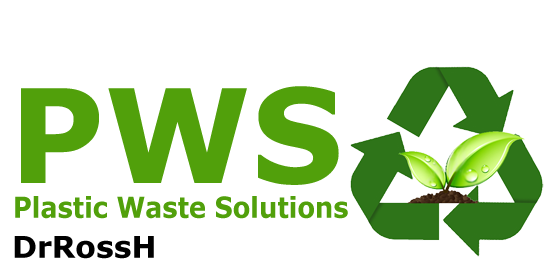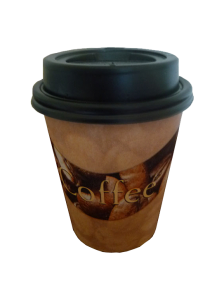KitKat wrapper made from recycled soft plastics – Australia
Posted on March 16, 2021 by DrRossH in Plastic Waste NewsNestlé, together with other companies, has collaborated to develop Australia’s first soft plastic food wrapper made with recycled content.
The prototype KitKat wrapper, which aims at closing the loop on recycling soft plastics, has been created by Nestlé, CurbCycle, iQ Renew, Licella, Viva Energy Australia, LyondellBasell, REDcycle, Taghleef Industries and Amcor, who all brought their individual expertise together to collect and process waste soft plastic, turn it back into oil, and create a food-grade prototype wrapper.
Sandra Martinez, CEO of Nestlé Australia, said the project had been driven by a shared determination to resolve the soft plastics challenge – and an enormous amount of good will.
“Between us, we have shown that there’s a pathway to solve the soft plastics problem. To build this at scale, across all states and territories, across hundreds of councils, is going to take a huge effort from government at all levels, from industry and from consumers, but I think it can be done.
“Manufacturers like Nestlé will have a key role in driving demand for food-grade recycled soft plastic packaging, and creating market conditions that will ensure all stakeholders throughout the value chain view soft plastics as a resource and not waste,” said Martinez.
Food-grade recycled soft plastic packaging has been a barrier in Australia’s bid to improve waste management and build a circular economy, with a lack of both collection and processing infrastructure making it difficult to keep waste out of landfill and hard to meet demands for packaging with recycled content.
Danial Gallagher, CEO of iQ Renew, said that “to improve the recycling rate of soft plastics, kerbside collection is an important point of convenience. In the trial, soft plastics are collected from kerbside recycling bins in a dedicated bright yellow bag, then sorted from the recycling stream at our MRF.”
“To create the KitKatwrapper with 30 per cent recycled content, the soft plastics were processed, then sent to Licella for conversion back into the oil from which they originally came. This oil was then used to produce new food grade soft plastics,” said Gallagher.
This is an example of how hard it is going to be to recycle soft plastic into useful material. They had to take it back to the original oil state. Plus only deep into the article do you find out it is only 30% recycled, which means we have to eat three Kitkats before we can make one new recycle label. Hardly sustainable.

 How many people today grab a takeaway coffee cup from the local cafe to drink on the go? We don’t know, but the number must be enormous.. Most every one of the above have a plastic top that will last 100s of years. Some cafes still use plastic cups that last a similar time. Is 10 minutes of coffee worth 100s of years of trash?
These items can be seen littering our gutters and on our streets all over the place. If they were all cardboard, they would still be littered, but they would, at least, be gone in a short time.
They do not need to be made of plastic.
How many people today grab a takeaway coffee cup from the local cafe to drink on the go? We don’t know, but the number must be enormous.. Most every one of the above have a plastic top that will last 100s of years. Some cafes still use plastic cups that last a similar time. Is 10 minutes of coffee worth 100s of years of trash?
These items can be seen littering our gutters and on our streets all over the place. If they were all cardboard, they would still be littered, but they would, at least, be gone in a short time.
They do not need to be made of plastic.
 On the way home from the gym last week, a distance of about 1 km (1/2 mile), I counted the items of plastic litter on the curb as I walked. In that short distance I counted 63 pieces of plastic litter. Plastic drink bottles, bottle tops, candy wrappers, plastic film, polystyrene fragments etc. That seemed to be a lot to me. I guess it is a generational thing. Our parents would have been horrified to see that amount, whereas it seems to go unnoticed by our youth of today. In another 20 years how many pieces will there be on this stretch, -- 200? What will today’s youth think of that new amount then when they are older? Will their children be so readily accepting of a higher amount of litter?
On the way home from the gym last week, a distance of about 1 km (1/2 mile), I counted the items of plastic litter on the curb as I walked. In that short distance I counted 63 pieces of plastic litter. Plastic drink bottles, bottle tops, candy wrappers, plastic film, polystyrene fragments etc. That seemed to be a lot to me. I guess it is a generational thing. Our parents would have been horrified to see that amount, whereas it seems to go unnoticed by our youth of today. In another 20 years how many pieces will there be on this stretch, -- 200? What will today’s youth think of that new amount then when they are older? Will their children be so readily accepting of a higher amount of litter?
Discussion · No Comments
There are no responses to "KitKat wrapper made from recycled soft plastics – Australia". Comments are closed for this post.Oops! Sorry, comments are closed at this time. Please try again later.